Technology and Operational Efficiency Boosts Law Firm Performance
Law firms of all sizes face intense competition from new and traditional sources. This includes clients, who have taken more work in-house, and online legal service providers add to the pressure on law firms to provide high-quality work more efficiently.
Additional challenges facing law firms include winning new business, growing existing business and boosting law firm agility and adaptability.
Pricing and growth in a competitive environment are related to a firm’s ability to efficiently deliver quality legal services. This requires adding the means to meet shifting client demands without overtaxing internal systems.
To control prices and improve operational efficiency, technology is the answer. Technology and operational efficiency work hand-in-hand to provide opportunities for law firms to reach more clients, set reasonable fees, and increase their profits.
Why law firm efficiency is important
Efficiency for a law firm can be defined as the time and effort required to carry a matter from initial intake to paid invoice. The more efficient this process, the better a law firm’s bottom line. Yet many firms have put little or no effort into streamlining this area of their operations.
A recent survey showed that 74% of the 400 respondents said spending too much time on administrative tasks was at minimum a “moderate” challenge, up 2% from the year before.that’s a small increase, it points to the fact that firms failed to address the technology and operational efficiency challenge, and that it’s becoming more of a problem.
This lack of effort works counter to how law firms define success – 85% say it’s based on overall profits. Inefficiency eats away at profits and dilutes the most important measure of success for many firms by filling an attorney’s day with non-billable work.
Firms that don’t operate technology and operational efficiency will continue to suffer the consequences of:
- Dissatisfied clients. Legal clients are like any other consumer, and in the digital age, they want immediate service and fast results. This might be impossible 99% of the time, but a law firm who doesn’t have the tools to operate efficiently can leave a client feeling neglected.
- Losing your competitive edge. There’s always been competition, but with the rise of Alternative Legal Service Providers (ALSPs), the playing field has changed and it’s important to keep a competitive edge.
The growth of ALSPs, and their technological efficiencies shines a spotlight on the importance of being able to deliver quick, frictionless services.
- Lost profits. Pricing is always an issue for clients, and since fees aren’t likely to be reduced, the battle is between non-billable and billable hours. A 2019 report showed that a mere 2.5 hours per day were billable for the majority of lawyers.
Both McKinsey and Deloitte have stated that more than 23% of legal roles could be automated, including data entry and repetitive and lower-skilled jobs. Automation removes these non-billable costs that lower profits.
How technology can improve operational efficiency
Efficiencies can be found in automating tedious, time-consuming tasks. This allows lawyers to spend more time bringing in new business, shortening response time, and improving the quality of their work – all while decreasing overhead expenses.
The processes that can be automated include: time and expense entry, client intake, budgeting, coding, invoicing, and document review.
When lawyers were asked where they saw the most potential for increased efficiency, they responded:
- Analytics and business intelligence
- System integration
- Collaboration tools
- Mobile access
- Cloud-based solutions
In a recent Bloomberg law firm survey, four out of five respondents said the volume of work produced by their organization increased from the use of legal technology, and 71% stated that the adoption of technology and operational efficiency meant an improved quality of work.
The technology these firms reported using include:
- Document management software (66%)
- Financial software (52%)
- Business intelligence (49%)
- Pricing software (47%)
- Case management software (47%)
- Other digital tools, including: project management, CRM, document assembly, and e-discovery software.
It’s significant to note that the respondents reported that automation and analytics will be key to meeting client needs in the future.
The future of technology and operational efficiency
The legal profession has been around since the fourth century, and ways of doing things become ingrained. However, the pandemic forced law firms to think outside the box, innovate, and adapt to new ways of doing business.
The most obvious manifestation of this is remote working. Law firms were forced to quickly pivot, and most did it successfully – 92% of firms said they were prepared (unexpectedly) for the changes they faced.
However, the top challenge cited by law firms, technology and operational efficiency remained. Unfortunately, this has been the case in previous surveys. It’s incumbent on law firms to use the lessons learned during the pandemic for future success.
It’s predicted that tomorrow’s lawyers will develop the systems that solve clients’ problems and improve operations. They will be legal knowledge engineers, legal risk managers, system development savvy, and experts in design thinking. Lawyers will develop new ways to solve legal problems by leveraging technology.
Artificial intelligence will also be part of the law firm of the future. While it’s already being used in a limited capacity, it’s valuable for e-discovery, automation of expertise, research, document management, document analytics and generation, as well as predictive analytics.
However, no artificial intelligence can provide four basic human functions: judgment, empathy, creativity, and adaptability.
Remember: Efficiency in law is not only about working faster or consuming fewer resources. At its core, technology and operational efficiency is about working smarter to future-proof your firm. In most industries where efficiency is a core value for the target market, early adopters are the big winners.
Technology and Operational Efficiency for Today and Tomorrow
We’re the legal technology experts with specific expertise that’s focused squarely on your success. This has resulted in an impeccable record of client retention and growth.
As your IT partner, Vertex recommends and integrates the best law firm applications, workflows, efficiencies and customized systems to eliminate downtime, enhance IT security and increase your law firm’s productivity.
Tangible results, best-in-class managed IT solutions and an entire team of Toronto IT professionals dedicated to your law firm’s success – that’s the Team Vertex Advantage.
The future won’t wait. Reach out today.






